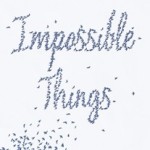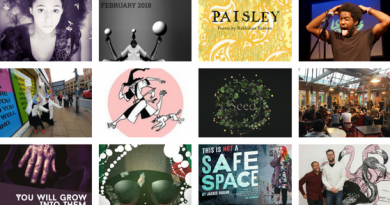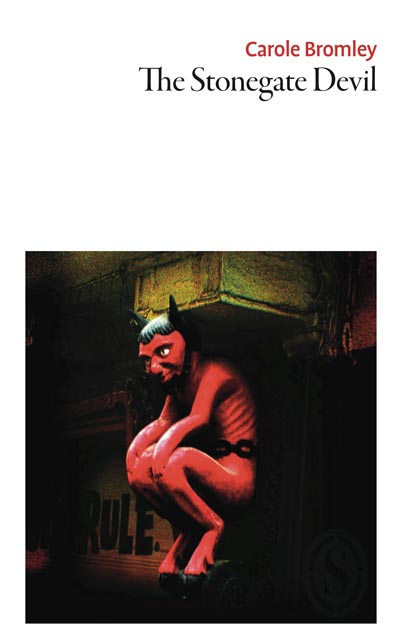Impossible Things: Creative Future Literary Winners
– Reviewed by Grant Tarbard –
Impossible Things is an anthology featuring the twelve award winning entries in the 2015 Creative Future Literary Awards. A happy marriage between Kingston University Press and Myriad Editions, this is an interesting read, with works from Catherine Edmunds, Alexi Francis, Des Mannay, Sanya Semakula, Jackie Hagan, Moray Sanders, Suna Akiah, Oliver Redfern, Nick Lewis, Tina Freeth, Allison Dean and Peter Jordan.
Creative Future is a wonderful charity, showcasing talented writers who might otherwise might lack opportunities due to physical and mental health issues, disability or social circumstance. Luminaries such as as Stephen Fry and Patrick Gale have lent their support and endorsements, and the twelve award winners are complemented by work from CFLAs guest writer Maggie Gee and its patron, the rolling stone Lemn Sissay. The winning poems and short stories were chosen by a plethora of experts in their field, including staff from New Writing South and Myriad Editions.
Each entry responded to the theme ‘impossible things’, inspired by the famous quote from Alice in Wonderland: ‘Why, sometimes I’ve believed as many as six impossible things before breakfast.’
I have to say, it is a mixed bag. The Platinum award winner, a poem by Catherine Edmunds, ‘Anatomy for the Artist’, ripples with dark humour, images that flutter by and stick to the windscreen of my eyes.
Back in the house, the chairs were moving,
having nothing else to do. The books talked quietly,
turned twilit pages.
‘Fox’ by Alexi Francis, a Platinum award winner too, is a mojo of suburban gothic romanticism:
Shadows shape themselves into the form of a fox.
I love the shapes of the language forming on my tongue. My favourite line is
In my pocket I clutch the warm shape of an egg, a simple offering.
This is a dream of a suburban fairytale. You know when a work is good when you think “I wish I’d written that.”
‘They Call Me’ by Des Mannay is a funny, sometimes exasperated poem that doesn’t quite hit the mark, with confusion in what it wants to say. Is it a political/social comment poem, with lines such as
They call me ‘Johnnie Foreigner’
Although I’m from this place
Or a John Cooper Clarke pastiche?
They call me platypus
Because I duck my bills
Despite these perceived flaws with the narrative of the poem, it has a certain charm that carries it, and the resolution wraps it up nicely enough:
I’d prefer they didn’t
Call me anything at all.
I want to mention Nick Lewis’ ‘On Seeing Wild Goats on an Island off Mallaig’, because the imagery of the poem attached itself to my cardigan and wouldn’t let go. Here’s a bit from it:
Behind us the herring boats
and sheds stiff against the shrinking hill,
as our motorboat headed west.
Like Hughes and Heaney, Lewis delivers a lucid poem, a simple layer of a witnessed event. Not to say that other poems don’t do this; it just struck me, maybe due to my trips to Cornwall as a boy – the cliffs, goats, fishing boats.
Maggie Gee’s beautiful short story, slightly surreal in an Iain Banks way, is exceptional:
She paddled across the blazing sand. Glad, glad: everything was glad. She knew she could only bear it for a few seconds, but a few seconds would be enough. She took off her clothes. In the distance, people shouted.
Lemn Sissay’s Colour Blind is a hellacious burst of pigments, a luminous Whirling Dervish, feverishly pitched at breakneck speed:
If you can see the red dust of the famished road
The white air tight strike of Nike’s sign
If you can see the skin tone of a Lucien Freud
The colours of his frozen subjects in mime
To wrap this anthology up in a nice, pretty bow would be impossible; the nature of an anthology is such that there’s something in it for everyone, and this anthology is no exception. Do purchase it.





